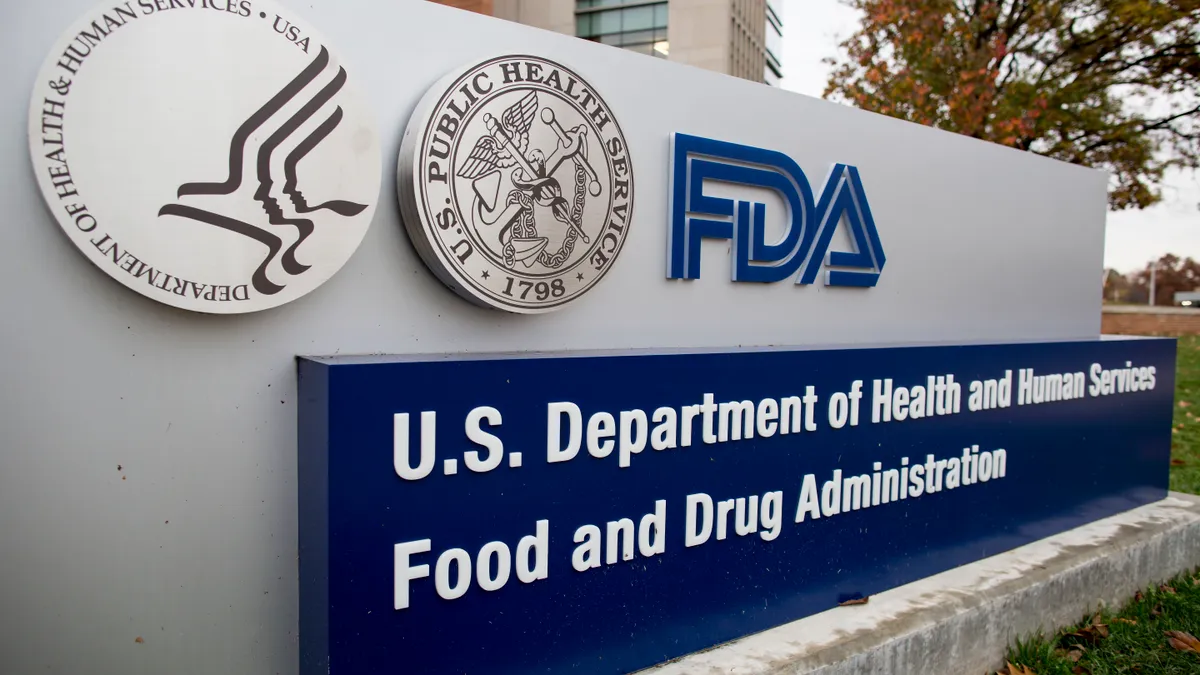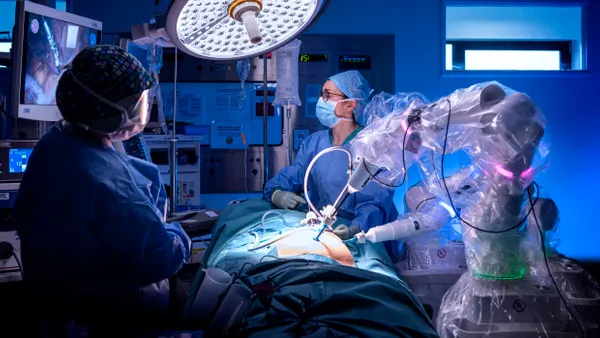Dive Brief:
- Boston Scientific said Monday it received FDA approval for the Vici Venous Stent system, which the medtech giant acquired in August 2018 as part of its takeover of Veniti.
- The self-expanding nitinol device, used to treat iliofemoral venous obstructive disease where a blood clot or compressed vein can cause blood to pool in the legs and cause pain, swelling and skin ulcers, seeks to restore normal blood flow from the legs back to the heart. Boston Scientific said the product was engineered to be crush resistant due to the location of the iliofemoral veins in the pelvis.
- The premarket approval was based on a prospective, multi-center, single-arm study with 170 patients. About 84% of patients treated with Vici met the 12-month primary patency rate for the study and 98.8% of patients did not have a major adverse event 30 days post-procedure. The device received a CE mark in 2013.
Dive Insight:
Boston Scientific CEO Michael Mahoney told investors on the company's first quarter earnings call the Vici stent will likely be launched during the second quarter. The executive said the stent will contribute to full-year organic growth in its peripheral interventions unit "well accretive to the company's overall growth rate."
Approval of the Vici stent will likely trigger additional milestone payments under Boston Scientific's acquisition deal with Veniti. In 2016, the medtech giant took a 25% stake in Veniti for $25 million. Last August, Boston struck a deal for the remaining 75%, agreeing to pay $108 million in cash with up to $52 million more contingent on FDA approval of the Vici stent system.
With the new product, Boston Scientific is eyeing the more than 1.1 million people in the the U.S. and Western Europe affected by venous obstructive disease, the company cited.
The approval adds another stent option to the U.S. market. In March, BD announced its Venovo stent was the first authorized product indicated to treat iliofemoral venous occlusive disease in the U.S.
More products are likely on the way. Cook Medical's Zilver Vena stent completed the primary completion date for its clinical study in 2017 and Medtronic launched an investigational device exemption study for its Abre stent system in January.
FDA Center for Devices and Radiological Health Director Jeff Shuren announced in March the agency will hold an advisory committee meeting in the fall to discuss the use of nitinol and other metals in devices and a potential risk for hypersensitivity or an exaggerated immune and inflammatory reaction to such materials. In April, FDA published draft guidance with recommendations on information manufacturers should include in a premarket submission for nitinol devices.
"We’ve been exploring the link between immune and inflammatory markers and symptoms such as pain, headaches and fatigue in patients who have these devices implanted," Shuren said in a statement. "Importantly, we’d like to determine how to identify patients who might be at increased risk of having a hypersensitivity response before they receive a metal implant, so they can consider those risks along with the device’s benefits."













